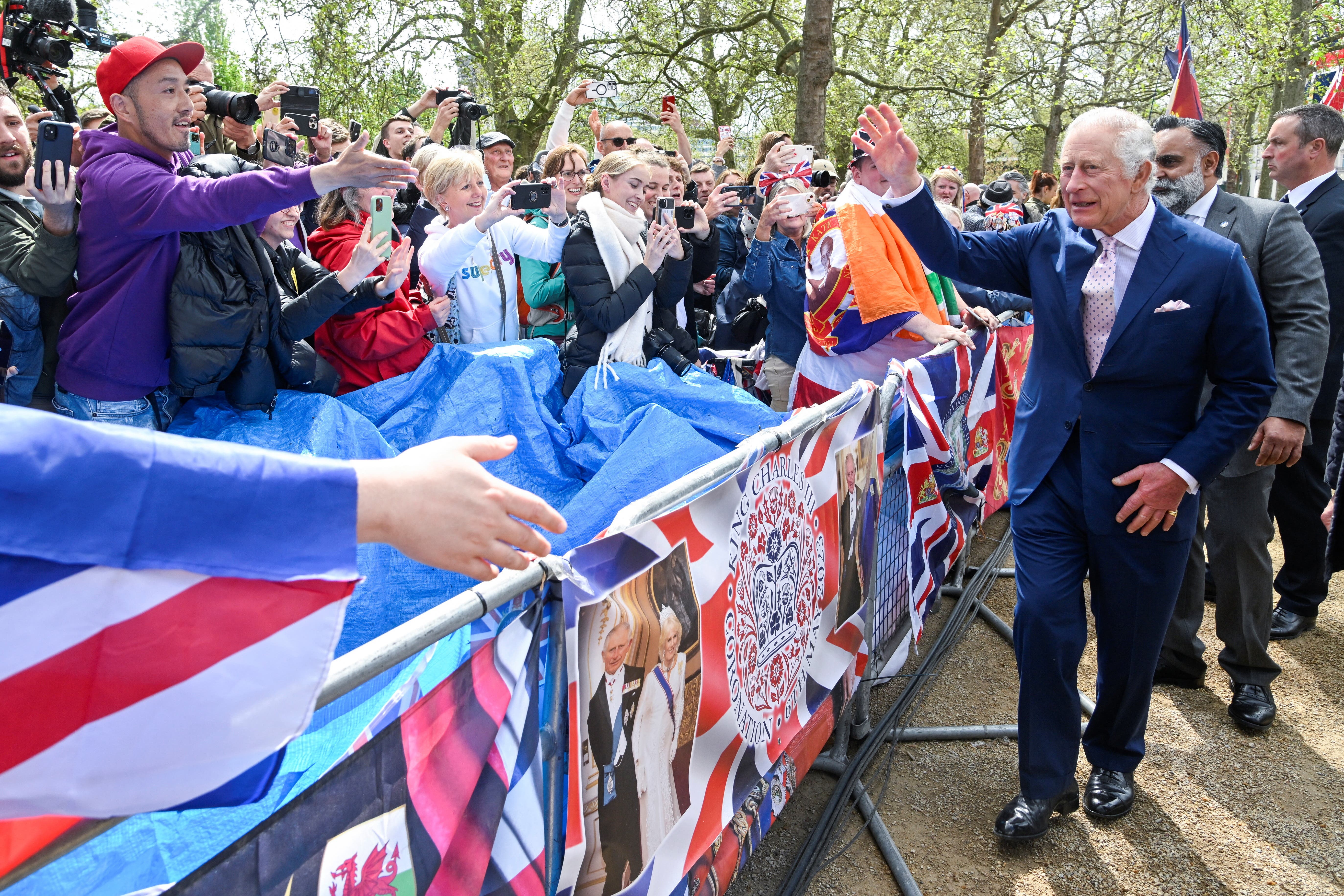A king for the TikTok generation: How Charles will modernise the monarchy
The newly crowned king will have to focus on even younger people, the so-called Generation Z, if he wants to make the monarchy relevant to all ages, writes royal expert Ian Lloyd


Today’s coronation ceremony will be a foretaste of what we can expect from the reign of Charles III.
It will be an amalgam of the traditional and the modern, an inclusive celebration rather than a quasi-imperial pageant.
Gone are the “great and good” (or at least most of them) with only 40 MPs and 40 peers present – a 20th of the number that attended his mother’s coronation. Gone too are the distant relatives, such as the children and grandchildren of the king’s Kent and Gloucester royal cousins and Lady Pamela Hicks, the daughter of the King’s mentor, Earl Mountbatten, whom he called his “honorary grandfather”.
Replacing them are 450 British Empire Medal holders, “ordinary” people who have done extraordinary things for their country – volunteers, charity representatives and community champions. A further 400 young people representing charitable organisations, nominated by the King, the Queen Consort and the UK government, will have the opportunity to watch the coronation service and procession from St Margaret’s Church, Westminster Abbey. For the first time in a millennium of coronations, the emphasis is on a meritocracy rather than the aristocracy.
It is vastly different from the 1937 coronation of his grandfather, George VI, when the king personally invited just four “workpeople” (as they were described): a weaver, a steel worker, a young pit worker, and a young employee of an electric works.
The coronation will also avoid any unnecessary expense at a time of severe economic hardship for millions. The processional route will be 1.3 miles – unlike the five-mile procession of Elizabeth II and George VI, which would have meant a mammoth security bill as well as the closure of shopping areas such as Oxford Street. There are also no expensive stands in Westminster Abbey, which enabled 8,250 people to witness his mother’s ceremony. Only the normal abbey congregation of 2,000 will be present for Charles’s.
So, will this economic and social awareness from the king and his advisers be a flash in the pan, or is it the start of a new 21st century redefining of the monarchy?
In a way, it helps that he has had what David Cameron described as the “longest apprenticeship in history”. Unlike his mother who came to the throne as a comparative ingénue at 25, heavily reliant on Victorian-born reactionaries such as her prime minister Winston Churchill and her private secretary Alan Lascelles, Charles is half a century older and far more experienced.
He has inherited the pragmatic approach to the monarchy exhibited by both his parents. Already he has shown himself to be more initiative-taking than his mother, who tended to react to crises affecting the House of Windsor. He has signified his support for research into the monarchy’s link with the slave trade as well as making it clear, even before he became king that he wanted a slimmed-down monarchy, concentrating on the immediate line of succession.
This leads on to that thorniest of issues: what to do about princes Harry and Andrew, the two spectres at today’s feast. It would be madness for the family firm for him to offer either man a return to royal duty. On the other hand, he is privately rehabilitating his brother back into family life, allowing him to walk directly behind him in the family arrival for church at Easter. Harry, who has infuriated his father by openly criticising his stepmother Camilla, is more of a challenge; though the King will never break off all ties with his second son, unlike Prince William who is a less forgiving character.
The newly crowned King will have to focus on even younger people, the so-called “TikTok” Generation Z, if he wants to make the monarchy relevant to all ages. Charles, aged 75 in November, and Camilla, who turns 76 in July, are far from an ad man’s dream choice as king and consort, and will have to work out how to appeal to the citizens of tomorrow.
The King has, of course, helped over a million young people over the decades through the Prince’s Trust, as well as his other charities. It is one area that he will need William and Kate, and eventually the three Cambridge children, to involve themselves in. How to make young people, particularly those in marginalised groups, connect to a privileged and rich royal dynasty will be one of the immediate challenges of the new reign.
Another is challenging the perception that the royal family and the court show systematic bias against people of colour. This was highlighted in Meghan Markle’s interview with Oprah Winfrey in which she claimed an unnamed royal had concerns about her unborn baby’s skin colour. Racism also dominated the headlines when Lady Susan Hussey, the late Queen’s lady-in-waiting and godmother to Prince William asked Ngozi Fulani, a guest at a palace function, “where are you from?”
Mud sticks, and while friends of the King, including Nicholas Soames, claim he “hasn’t got a racist drop of blood in his body”, critics claim it’s endemic in the House of Windsor. Charles, whose Prince’s Trust has helped young people of all backgrounds and colour, will again need to be proactive, weeding out reactionary courtiers and replacing them with a more representative staff. He and his family will have to be seen to be more involved in organisations that seek to eradicate racism in society, and to make more public statements on the topic.
The King insisted, in 2018, that it was “complete nonsense” that he would campaign on issues he championed as Prince of Wales, realising he needs to remain politically neutral and avoid controversial topics. He conceded: “It will no longer be possible for me to give so much of my time and energies to the charities and issues for which I care so deeply.”
Nevertheless, when he speaks, people do listen, and it is almost certain that he will urge the prime minister of the day to push for action on the climate crisis. He can use his position and undoubted skill in soft power to bring people together and to remind leaders that the threat to the planet needs urgent action. As he warned in his speech at last year’s Cop26 climate summit in Glasgow, time has “quite literally run out”.
One other major issue he needs to tackle is his relationship with the Commonwealth, where rumblings of discontent concerning the monarchy’s colonial past, particularly in the Caribbean nations, was already apparent before the death of the queen. Her contribution to this institution was staggering over her seven-decade rule.
Her son’s age makes it less likely he will be able to visit the 14 overseas nations he is king of besides the UK and part of the Commonwealth of 56 nations he is head of. It is one of several areas that the Prince and Princess of Wales will need to be involved in, with regular overseas tours to commonwealth nations if the link with the monarchy is to survive.
Ian Lloyd is a professional writer and photographer, specialising in works relating to the royal family. He is author of The Throne: 1,000 Years of British Coronations, The History Press
Join our commenting forum
Join thought-provoking conversations, follow other Independent readers and see their replies
Comments
Bookmark popover
Removed from bookmarks